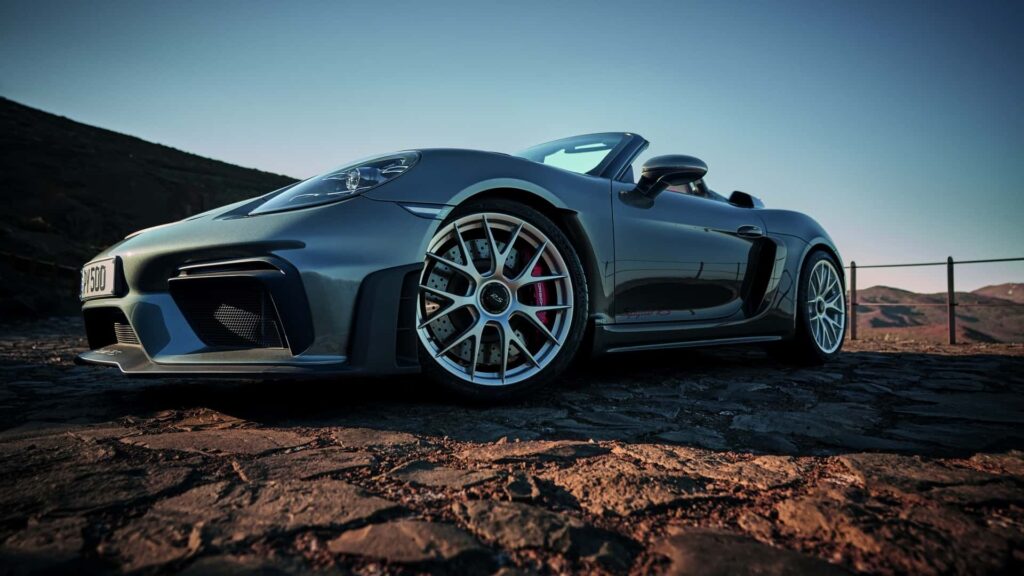
Porsche is giving the combustion-engined 718 Boxster and Cayman more life with new “top” versions that could inherit the 911’s flat-six engine.
The change, described by CEO Oliver Blume as a strategic realignment, represents a major shift in their electric plans. It includes scrapping the large K1 electric SUV project and keeping the Cayenne and Panamera with combustion engines well into the 2030s.
Porsche is also abandoning development of the Sport version of the Volkswagen Group’s SSP platform, which was supposed to underpin the K1, the next Taycan, and an electric Panamera. This decision comes with a €1.8 billion write-off, delaying the platform’s arrival until the next decade.
Blume explained that demand for exclusive battery-electric cars has dropped, and Porsche is adapting.
For the 718 range, the new top versions are expected to continue the hardcore Spyder RS and GT4 RS lineage, sitting above the incoming 718 EVs.
Because the U-turn cost Porsche €3.1bn, the brand is reportedly aiming for greater alignment between the 718 and 911 ranges to simplify production and reduce costs. Both already share the MMB platform, and bringing their powertrains closer would make sourcing components easier and increase economies of scale.
This move would also bring an end to the 718’s four-cylinder era. The turbocharged 2.0-litre flat-four won’t meet Euro 7 regulations arriving at the end of 2026. Instead, the new top 718s are set to use the T-Hybrid system introduced in the 911 Carrera GTS. This is made possible by that setup’s flat-six being 110 mm shorter than the 911’s regular twin-turbo unit, which is vital for fitting it into the mid-engined 718 chassis.
It’s essentially a return to the original Boxster strategy of being a slightly detuned 911 engine in a more attainable, mid-engined package.
The K1 flagship will now launch with combustion and plug-in hybrid powertrains instead of the previously planned electric setup. Porsche hasn’t confirmed a date yet. The K1 EV was originally announced in 2022 alongside plans for the third-generation Panamera and second-generation Taycan, targeting a 2027 or 2028 debut.
The K1 will be joined by the M1, the successor to the ICE Macan that was cancelled last year. The M1 will share its platform with the third-generation Audi Q5 and will also be offered with combustion and plug-in hybrid options.
Despite this shift, Blume reiterated that Porsche remains committed to electrification, noting that EVs appeal to a growing customer group. The brand is preparing to launch the Cayenne Electric based on the VW Group’s 800V PPE architecture and already sells Macan and Taycan EVs.
Blume said: “This flexibility gives us a strong position with a compelling mix of combustion engines, plug-in hybrids and battery-electric vehicles.”
